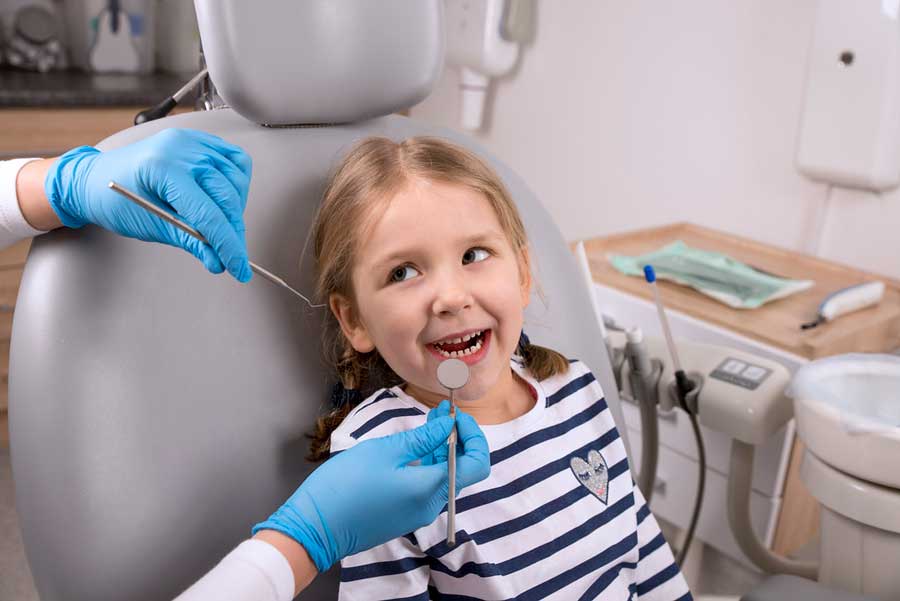Regular dental check-ups and cleanings may not always be the highlight of your calendar, but they are undeniably critical components of your overall health and well-being. The old adage, “prevention is better than cure,” holds particularly true in dentistry. In this comprehensive guide, we’ll delve into the world of preventive care, emphasizing why those regular dental check-ups and cleanings are far more than just routine appointments.
The Foundation of Preventive Dentistry
**1. *Regular Dental Check-ups:*
At the heart of preventive dentistry lie regular dental check-ups. These appointments, typically recommended every six months, serve as the foundation for maintaining optimal oral health. During a check-up, your dentist conducts a thorough examination of your teeth, gums, and oral tissues. They look for signs of decay, gum disease, oral cancer, and other oral health issues.
The key benefits of regular dental check-ups include:
- Early Detection: Regular visits enable early detection of dental problems. Catching issues in their infancy often leads to less invasive and less costly treatments.
- Oral Cancer Screening: Oral cancer can be aggressive, but when detected early, it is highly treatable. Your dentist performs an oral cancer screening during your check-up.
- Professional Cleaning: A dental hygienist performs a professional cleaning during your check-up, removing plaque and tartar buildup that can lead to cavities and gum disease.
- Education: Dentists provide valuable education on proper oral hygiene techniques, including brushing, flossing, and dietary advice.
- Personalized Care: Your dentist can tailor recommendations and treatments to your unique oral health needs.
**2. *Dental Cleanings:*
Dental cleanings, also known as prophylaxis, complement regular dental check-ups. While at-home oral hygiene is crucial, it can’t replace the thorough cleaning provided by a dental hygienist. Here’s why dental cleanings are indispensable:
- Plaque and Tartar Removal: Dental cleanings remove plaque (a soft, sticky film of bacteria) and tartar (hardened plaque) from your teeth. This prevents the formation of cavities and gum disease.
- Gum Health: Cleanings address gum health by eliminating irritants that can lead to inflammation and gum disease.
- Fresh Breath: Cleaning removes bacteria and food particles that contribute to bad breath.
- Polishing: After removing plaque and tartar, your hygienist polishes your teeth, leaving them smooth and less prone to plaque buildup.
The Role of Preventive Care in Your Overall Health
Oral health is not isolated from your overall health; the two are intricately connected. Neglecting oral health can have far-reaching consequences for your well-being. Here’s how preventive care impacts your overall health:
**1. *Heart Health:*
Research suggests a link between gum disease (periodontitis) and heart disease. Inflammation in the gums may contribute to inflammation in the cardiovascular system. Preventing gum disease through regular dental check-ups and cleanings may benefit your heart health.
**2. *Diabetes Management:*
Uncontrolled diabetes can lead to gum disease, and gum disease can make it more challenging to control blood sugar levels. Managing oral health through preventive care can support diabetes management.
**3. *Respiratory Health:*
Oral bacteria can travel to the lungs and contribute to respiratory infections, including pneumonia. Maintaining good oral hygiene through preventive care can reduce the risk of respiratory issues.
**4. *Pregnancy Health:*
Pregnant women with gum disease may be at a higher risk of preterm birth and low birth weight. Preventive dental care is particularly important during pregnancy.
**5. *Digestive Health:*
Digestive problems can arise from poor oral health, as proper chewing and digestion begin in the mouth. A healthy mouth supports overall digestive function.
**6. *Mental Health:*
Oral health can impact self-esteem and mental well-being. Addressing dental issues through preventive care can boost confidence and mental health.
The Cost-Effectiveness of Preventive Care
Some individuals may be hesitant to schedule regular dental check-ups and cleanings due to concerns about cost. However, preventive care is not only cost-effective but often more affordable in the long run. Here’s why:
- Early Intervention: Detecting and treating dental issues early can prevent them from progressing into more severe and costly conditions.
- Avoiding Complex Procedures: Preventive care reduces the likelihood of needing complex and expensive dental procedures like root canals or dental implants.
- Preserving Oral Health: Maintaining healthy teeth and gums reduces the need for extensive dental work, saving both money and discomfort.
- Insurance Coverage: Many dental insurance plans cover preventive care entirely or at a significantly reduced cost.
Maintaining Oral Health at Home
While regular dental check-ups and cleanings are crucial, maintaining oral health at home is equally important. Here are some tips for daily oral care:
- Brush: Brush your teeth at least twice a day, preferably in the morning and before bedtime. Use fluoride toothpaste and a soft-bristle brush.
- Floss: Floss daily to remove food particles and plaque from between your teeth and along the gumline.
- Rinse: Consider using an antimicrobial mouthwash to help reduce bacteria in your mouth.
- Diet: Consume a balanced diet low in sugary and acidic foods, which can contribute to tooth decay.
- Hydration: Drink plenty of water to help maintain oral health and prevent dry mouth.
Conclusion: Prioritize Preventive Care
In the grand scheme of your health and well-being, regular dental check-ups and cleanings are small investments with significant returns. By prioritizing preventive care, you not only maintain a healthy smile but also support your overall health. Remember, good oral health is a cornerstone of a vibrant and fulfilling life. So, schedule those check-ups, keep those cleanings on the calendar, and smile your way to a healthier future.


